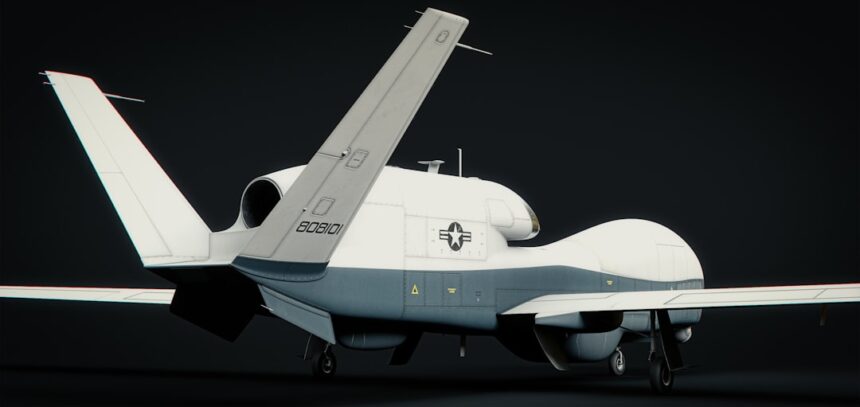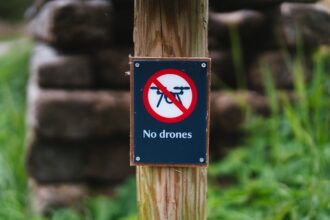In recent years, the landscape of military technology has undergone a seismic shift, characterized by rapid advancements that have transformed the nature of warfare. From artificial intelligence and drones to cyber warfare capabilities, nations are increasingly investing in cutting-edge technologies to gain a strategic edge over their adversaries. This technological revolution has not only redefined traditional combat but has also introduced new complexities and challenges that military leaders must navigate.
As nations race to develop and deploy these advanced systems, the implications for global security and military strategy are profound. The integration of technology into military operations has led to unprecedented levels of efficiency and precision. Autonomous systems can now conduct surveillance, gather intelligence, and even engage in combat with minimal human intervention.
However, this reliance on technology raises critical questions about the future of warfare. As militaries become more dependent on sophisticated systems, the potential for unintended consequences and ethical dilemmas grows. The balance between leveraging technological advancements and maintaining human oversight is a delicate one, and it is essential to explore the ramifications of this evolving landscape.
Key Takeaways
- Overreliance on military technology can lead to unintended consequences and escalation of conflicts.
- Cyber attacks and hacking pose a significant risk to military systems and can lead to vulnerabilities and failures.
- The ethical and moral implications of autonomous weapons raise concerns about the lack of human oversight and accountability.
- Advanced military technology has the potential for misuse and abuse, impacting civilian populations and infrastructure.
- International cooperation and regulation are necessary to reevaluate military strategies and prioritize human decision-making.
The Consequences of Overreliance on Technology in Warfare
The overreliance on technology in warfare can lead to a range of consequences that may undermine military effectiveness. One significant concern is the potential for complacency among military personnel. As advanced systems take on more responsibilities, there is a risk that soldiers may become less engaged in critical decision-making processes.
This detachment can result in a diminished understanding of the battlefield dynamics, ultimately affecting the ability to respond effectively to rapidly changing situations. The reliance on technology may create a false sense of security, leading commanders to underestimate the complexities of human behavior and the unpredictability of conflict. Moreover, overreliance on technology can create vulnerabilities that adversaries may exploit.
As militaries integrate advanced systems into their operations, they may inadvertently expose themselves to cyber threats and electronic warfare tactics. An enemy that understands how to disrupt or manipulate these technologies can gain a significant advantage. This dynamic underscores the importance of maintaining a balance between technological capabilities and traditional military skills, ensuring that personnel remain adept at critical thinking and adaptive strategies in the face of evolving threats.
The Risk of Cyber Attacks and Hacking

As military operations increasingly depend on digital infrastructure, the risk of cyber attacks and hacking has escalated dramatically. Cyber warfare has emerged as a potent tool for state and non-state actors alike, capable of crippling military systems and disrupting communication networks. The interconnectedness of modern military technology means that a single breach can have far-reaching consequences, potentially compromising sensitive information and operational readiness.
This vulnerability highlights the need for robust cybersecurity measures to protect against malicious actors seeking to exploit weaknesses in military systems. Furthermore, the implications of cyber attacks extend beyond immediate operational concerns. A successful cyber intrusion can erode public trust in military institutions and national security.
When citizens perceive their military as vulnerable to external threats, it can lead to a crisis of confidence that undermines support for defense initiatives. As nations grapple with the realities of cyber warfare, they must prioritize investments in cybersecurity and develop comprehensive strategies to mitigate risks associated with digital vulnerabilities.
The Potential for Escalation and Unintended Consequences
| Factors | Potential Impact |
|---|---|
| Miscommunication | Could lead to misunderstandings and conflict escalation |
| Provocative Actions | May trigger aggressive responses and further escalation |
| Unintended Consequences | Could result in unforeseen negative outcomes |
| Emotional Reactions | May lead to impulsive decisions and further tensions |
The rapid advancement of military technology carries with it the potential for escalation and unintended consequences that could destabilize global security. As nations develop increasingly sophisticated weapons systems, the likelihood of miscalculations or misinterpretations rises significantly. A minor incident involving advanced technology could spiral into a larger conflict if not managed carefully.
The speed at which modern warfare operates means that decisions must be made rapidly, often without complete information, increasing the risk of escalation. Moreover, the introduction of autonomous weapons systems raises concerns about their potential use in conflict scenarios. These systems may operate independently, making decisions based on algorithms rather than human judgment.
In high-stakes situations, this lack of human oversight could lead to catastrophic outcomes if an autonomous system misidentifies a target or misinterprets a situation. The potential for unintended consequences underscores the need for careful consideration of how these technologies are deployed and regulated in military contexts.
The Ethical and Moral Implications of Autonomous Weapons
The rise of autonomous weapons systems presents profound ethical and moral dilemmas that challenge traditional notions of warfare. The ability for machines to make life-and-death decisions raises questions about accountability and responsibility in combat scenarios. If an autonomous system causes civilian casualties or engages in unlawful actions, who bears the moral burden?
Additionally, the deployment of autonomous weapons may desensitize societies to the realities of war. When machines are tasked with carrying out lethal actions, it can create a disconnect between the consequences of warfare and public perception.
This detachment may lead to a diminished sense of accountability among military leaders and policymakers, as decisions become increasingly abstracted from human experience. As nations grapple with these ethical challenges, it is essential to engage in meaningful dialogue about the implications of autonomous weapons on both a moral and societal level.
The Lack of Human Oversight and Accountability

One of the most pressing concerns regarding advanced military technologies is the lack of human oversight and accountability in decision-making processes. As militaries increasingly rely on automated systems, there is a risk that critical decisions may be made without adequate human intervention. This detachment raises questions about accountability when things go wrong—who is responsible for the actions taken by an autonomous system?
The absence of clear lines of accountability can create a dangerous environment where mistakes go unaddressed, leading to further erosion of trust in military institutions. Moreover, the lack of human oversight can hinder effective decision-making during complex operations. While algorithms can process vast amounts of data quickly, they may not account for nuanced factors that require human judgment.
In high-pressure situations where ethical considerations are paramount, relying solely on technology can lead to disastrous outcomes. It is crucial for military leaders to establish frameworks that ensure human oversight remains integral to decision-making processes, preserving accountability and ethical considerations in warfare.
The Vulnerability of Military Systems to Malfunctions and Failures
Despite their sophistication, advanced military technologies are not immune to malfunctions and failures. Technical glitches or software errors can compromise mission objectives and jeopardize personnel safety. The reliance on complex systems means that even minor issues can have significant repercussions on operational effectiveness.
For instance, a malfunctioning drone could inadvertently target friendly forces or civilian infrastructure, leading to unintended casualties and diplomatic fallout. Furthermore, as militaries integrate more technology into their operations, they must contend with the challenges of maintenance and reliability. Ensuring that advanced systems function as intended requires ongoing investment in training, support, and infrastructure.
A failure to address these challenges can leave militaries vulnerable during critical moments when operational readiness is paramount. As such, it is essential for military planners to consider not only the capabilities offered by advanced technologies but also their limitations and potential points of failure.
The Potential for Misuse and Abuse of Advanced Technology
The proliferation of advanced military technologies raises concerns about their potential misuse and abuse by state and non-state actors alike. As access to sophisticated weaponry becomes more widespread, there is an increased risk that these technologies could fall into the wrong hands or be employed for nefarious purposes. For instance, autonomous drones could be repurposed by terrorist organizations for targeted attacks against civilian populations or critical infrastructure.
Moreover, the potential for misuse extends beyond direct combat applications. Advanced surveillance technologies can be employed for oppressive purposes by authoritarian regimes seeking to monitor and control their populations. The dual-use nature of many technologies means that they can serve both legitimate military objectives and harmful agendas, complicating efforts to regulate their development and deployment effectively.
As nations navigate this complex landscape, it is imperative to establish robust frameworks that prevent the misuse of advanced technologies while promoting responsible innovation.
The Impact on Civilian Populations and Infrastructure
The integration of advanced military technologies into warfare has significant implications for civilian populations and infrastructure. As conflicts become increasingly reliant on precision strikes and automated systems, there is a heightened risk of collateral damage affecting innocent civilians. The use of drones for targeted strikes may minimize risks to military personnel but can result in devastating consequences for non-combatants caught in the crossfire.
Additionally, the impact on civilian infrastructure cannot be overlooked. Modern warfare often targets critical resources such as power grids, communication networks, and transportation systems—essential components for civilian life. Disruptions caused by military operations can lead to long-term humanitarian crises, exacerbating suffering among affected populations.
As militaries embrace advanced technologies, they must prioritize strategies that minimize harm to civilians while ensuring compliance with international humanitarian law.
The Need for International Cooperation and Regulation
In light of the challenges posed by rapid advancements in military technology, there is an urgent need for international cooperation and regulation to address these issues comprehensively. Nations must come together to establish norms governing the development and use of advanced military technologies, ensuring that ethical considerations are prioritized alongside strategic interests. Collaborative efforts can help mitigate risks associated with arms races driven by technological competition while fostering transparency among nations regarding their military capabilities.
Furthermore, international regulatory frameworks can provide guidance on the responsible use of emerging technologies such as autonomous weapons and cyber capabilities. By engaging in dialogue about shared concerns and establishing common standards, nations can work towards preventing misuse while promoting accountability in military operations. The complexities inherent in modern warfare necessitate a collective approach that transcends national boundaries—one that prioritizes global security over individual interests.
Reevaluating Military Strategies and Prioritizing Human Decision-making
As military technology continues to evolve at an unprecedented pace, it is essential for nations to reevaluate their strategies and prioritize human decision-making within their armed forces. While advanced technologies offer significant advantages in terms of efficiency and precision, they also introduce complexities that demand careful consideration. Balancing technological capabilities with ethical considerations requires a commitment to maintaining human oversight in critical decision-making processes.
Ultimately, the future of warfare will depend not only on technological advancements but also on how societies choose to navigate the ethical dilemmas they present. By fostering international cooperation and establishing robust regulatory frameworks, nations can work towards ensuring that advancements in military technology serve as tools for peace rather than instruments of destruction. In this rapidly changing landscape, prioritizing human judgment alongside technological innovation will be crucial for safeguarding global security and promoting responsible practices in warfare.
In the realm of military technology, overconfidence can often lead to unforeseen consequences, as advancements in weaponry and defense systems may not always guarantee success on the battlefield. A related article that delves into the intricacies of military strategy and the potential pitfalls of over-reliance on technology can be found on the website “In The War Room.” This article provides a comprehensive analysis of how technological superiority can sometimes create a false sense of security, leading to strategic missteps. For further insights, you can read more about this topic by visiting the article on inthewarroom.
com/’>In The War Room.
FAQs
What is military technology overconfidence?
Military technology overconfidence refers to the excessive belief in the capabilities and effectiveness of military technology, often leading to a lack of preparedness for potential vulnerabilities and limitations.
What are some examples of military technology overconfidence?
Examples of military technology overconfidence include the belief that a particular weapon system is invincible or that a certain defense technology is impenetrable, leading to a lack of investment in alternative strategies or defensive measures.
What are the consequences of military technology overconfidence?
The consequences of military technology overconfidence can include vulnerability to unexpected threats, underestimation of enemy capabilities, and a failure to adapt to evolving tactics and technologies.
How can military technology overconfidence be mitigated?
Military technology overconfidence can be mitigated through rigorous testing and evaluation of new technologies, consideration of potential vulnerabilities and limitations, and a willingness to adapt and invest in diverse defense strategies.
What role does historical analysis play in addressing military technology overconfidence?
Historical analysis can provide valuable insights into the consequences of military technology overconfidence, helping to inform decision-making and avoid repeating past mistakes.




